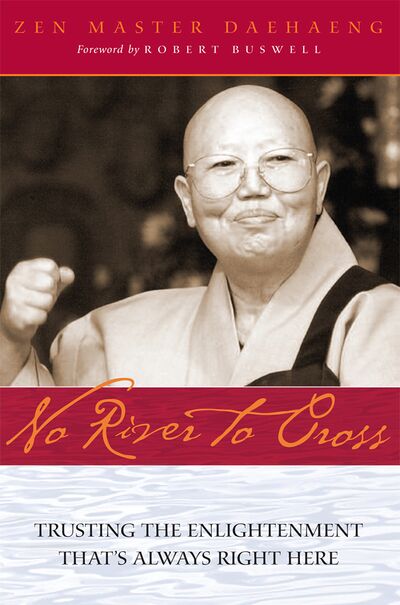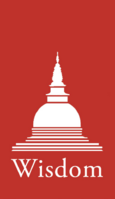No edit summary |
No edit summary |
||
| Line 59: | Line 59: | ||
**{{i|Teachers and Learning the Path|81}} | **{{i|Teachers and Learning the Path|81}} | ||
**{{i|Bowing|82}} | **{{i|Bowing|82}} | ||
**{{i|Keeping the Precepts|84}} | |||
**{{i|Sutras|85}} | |||
**{{i|Reciting the Buddha's Name and Chanting Sutras|87}} | |||
**{{i|One With Your Ancestors|87}} | |||
**{{i|True Giving|89}} | |||
**{{i|Fate and Destiny|90}} | |||
**{{i|Believing in Outer Powers|91}} | |||
**{{i|Religious Conflict|92}} | |||
*{{i|Glossary|93}} | |||
*{{i|A Note about the Current Text|99}} | |||
*{{i|Notes|101}} | |||
|AddRelatedTab=No | |AddRelatedTab=No | ||
|StopPersonRedirects=No | |StopPersonRedirects=No | ||
}} | }} | ||
Revision as of 18:47, 24 November 2020
It is often said that enlightenment means “crossing over to the other shore,” that far-off place where we can at last be free from suffering. Likewise, it is said that Buddhist teachings are the raft that takes us there.
In this sparkling collection from one of the most vital teachers of modern Korean Buddhism, Zen Master Daehaeng shows us that there is no raft to find and, truly, no river to cross. She extends her hand to the Western reader, beckoning each of us into the unfailing wisdom accessible right now, the enlightenment that is always, already, right here.
A Zen (or seon, as Korean Zen is called) master with impeccable credentials, Daehaeng has developed a refreshing approach; No River to Cross is surprisingly personal. It’s disarmingly simple, yet remarkably profound, pointing us again and again to our foundation, our “True Nature”—the perfection of things just as they are. (Source: Wisdom Publications)
| Citation | Daehaeng Sunim. No River to Cross: Trusting the Enlightenment That's Always Right Here. Boston: Wisdom Publications, 2007. |
|---|---|


